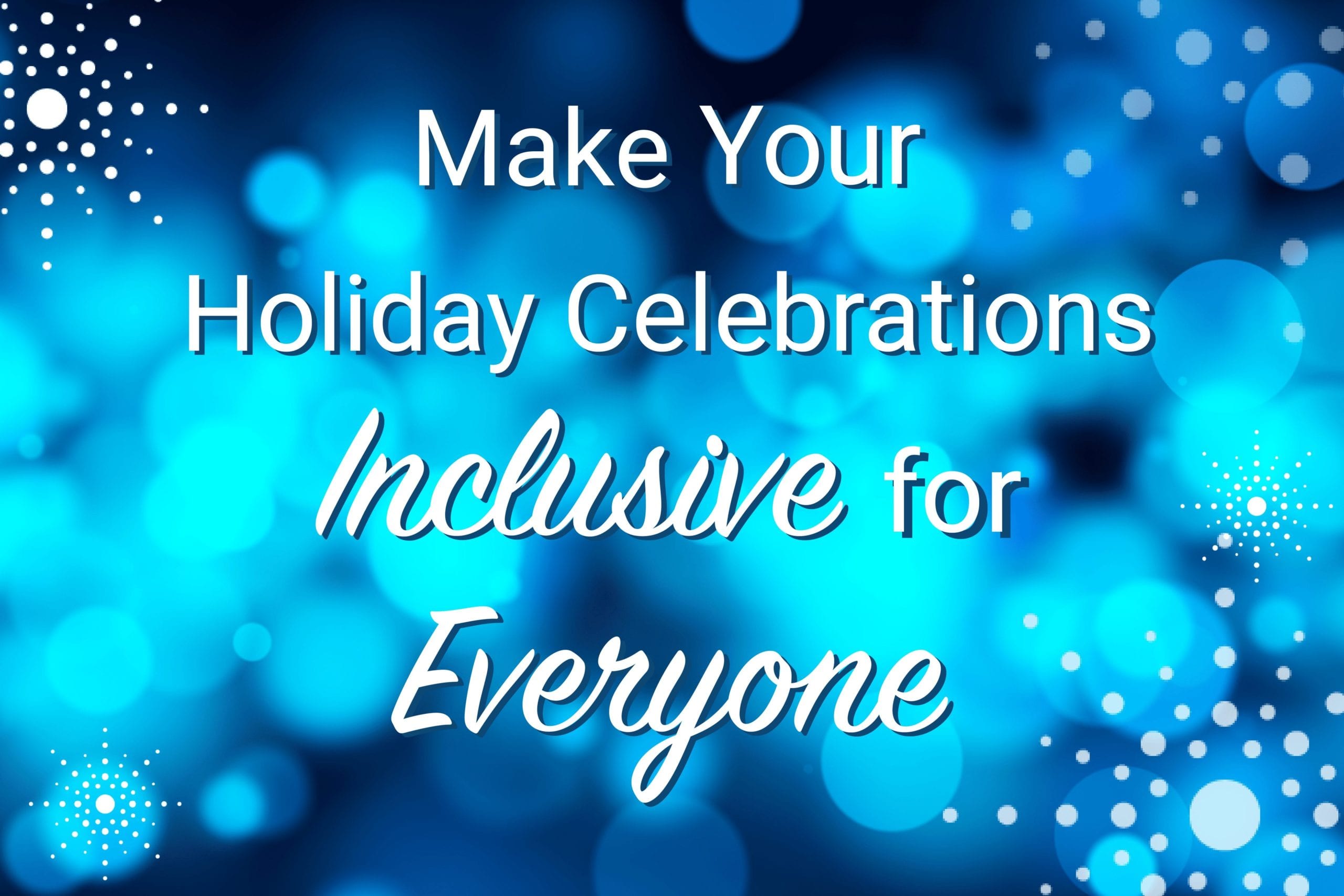
How to Make Your Holiday Celebrations Inclusive for Everyone
The holidays always bring opportunities for coming together and spending time with loved ones. Whether you’re a host, guest or both, there are plenty of ways you can make sure everyone—with or without disabilities—feels welcome and included. Read our tips to learn how you can make your holiday celebrations inclusive for everyone!
Include everyone in the planning
If you’re hosting a holiday celebration at your home, make sure your guests with disabilities are included in the planning. Speak with them in advance to learn how you can best accommodate them, so their experience is as warm and welcoming as anyone else’s.
Pro Tip: Include a line on your invites—whether you send through the mail or online—about accommodations and ask how you can best support everyone’s needs and make them feel welcome.
Make your home accessible
Consider the layout of your home – is there enough space for people in wheelchairs, walkers or crutches to get by? Move furniture around if you need to and have it in place before your guests arrive. (It could make someone feel uncomfortable if you’re moving furniture with your guests already there.) Check out the ADA’s recommendations for making your space wheelchair accessible.
Designate a quiet zone
Create a “quiet zone” for guests to privately retreat to if they get overstimulated or just simply need a break. Holiday gatherings can be overwhelming, but by offering a quiet room away from the festivities, your guests can sit back and recharge whenever they need to.
Provide allergy-friendly food options
Before you begin cooking for your guests, find out what dietary restrictions they may have so you can prepare allergy-friendly options. Be aware of cross contamination for guests who may have celiac disease or other severe allergies to food, like nuts or shellfish.
Pro Tip: Remind food-sensitive guests that they’re welcome to bring their own dish if they’re worried about food preparation or cross contamination. Check out more tips on celebrating the holidays with food allergies from FARE (Food Allergy Research & Education).
Limit sensory triggers
Guests with autism spectrum disorder (ASD) may get easily overwhelmed by sensory triggers such as bright or flashing lights, strong smells, and distracting sounds. Limit the amount of unfamiliar sensations to prevent guests from getting overstimulated.
Offer assistance with transportation
Guests with limited mobility may struggle to commute to your home if they’re not familiar with the area. Offer assistance with transportation by giving them a ride, ordering them a rideshare service, or coordinating carpool with another guest.
Pro Tip: Rideshare services like Uber and Lyft offer services for people with all types of disabilities.
Refrain from using stigmatizing language
While we’re aware to use respectful language, especially around family and friends during the holidays, we shouldn’t forget about inclusive language. Refrain from using stigmatizing language and phrases that may trivialize serious conditions and disabilities. A good rule of thumb is to keep language neutral and, when in doubt, ask if you’re unsure!
Remember: not all disabilities are visible
Many disabilities go beyond physical appearance. You may not be aware that a guest has a disability, which is why it’s so important to include a line about accommodations on your invitations. Make sure it’s respectful, welcoming, and lets all your guests know that they can reach out to you with any questions or concerns.
Keep these tips in mind when hosting family gatherings, attending office holiday parties, or even when you’re in public spaces. It’s important to proactively think about accessibility and take the proper steps to ensure everyone feels included and respected during the holiday season. Your thoughtfulness ahead of time can be the gift that provides all your guests with a warm, inclusive holiday.

Connect with Us